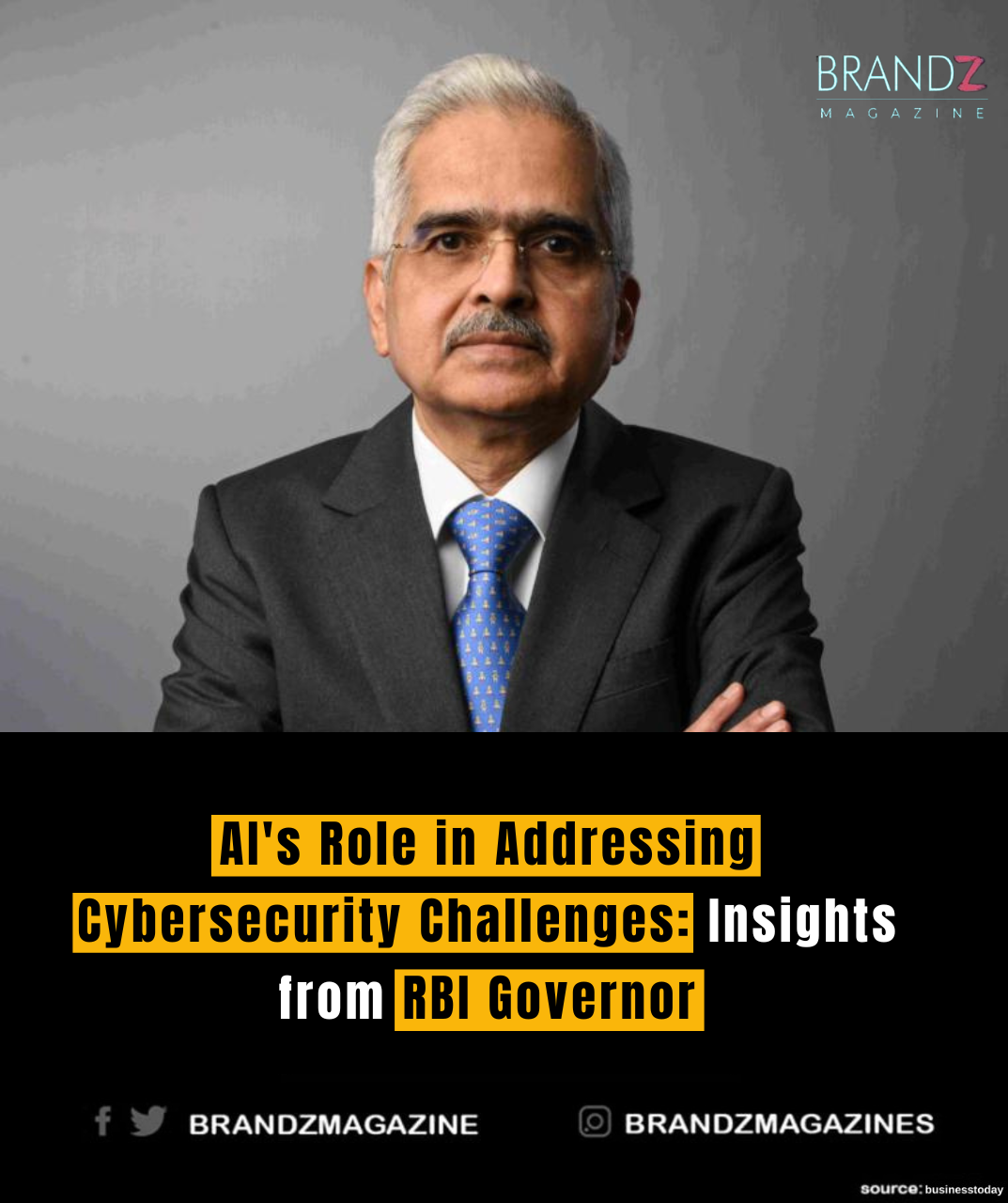
Artificial Intelligence (AI) is increasingly becoming a cornerstone technology in addressing cybersecurity challenges, offering advanced capabilities to detect, prevent, and respond to cyber threats. In a recent statement, the Governor of the Reserve Bank of India (RBI) highlighted the potential of AI in bolstering cybersecurity defenses while emphasizing the need for appropriate safeguards to harness its benefits effectively.
The rapid digital transformation across industries has led to a proliferation of data and increased connectivity, presenting both opportunities and challenges in terms of cybersecurity. With AI-driven solutions, organizations can leverage machine learning algorithms, anomaly detection techniques, and predictive analytics to strengthen their cybersecurity posture and mitigate risks.
One of the key advantages of AI in cybersecurity is its ability to analyze vast amounts of data in real time, identifying patterns, anomalies, and potential threats that may evade traditional security measures. AI-powered security tools can proactively detect suspicious activities, unauthorized access attempts, and emerging cyber threats, enabling organizations to respond swiftly and effectively.
Furthermore, AI enables automation of routine security tasks, such as patch management, threat hunting, and incident response, freeing up cybersecurity professionals to focus on strategic initiatives and threat intelligence analysis. This not only improves operational efficiency but also enhances overall security resilience.
However, while AI offers significant benefits in combating cyber threats, it also presents unique challenges and considerations. The RBI Governor emphasized the importance of implementing appropriate safeguards and ethical guidelines to ensure responsible AI usage in cybersecurity.
One of the key concerns related to AI in cybersecurity is the potential for algorithmic bias and false positives, which can lead to erroneous threat detections or discrimination in decision-making processes. It is crucial for organizations to regularly audit and validate AI models, ensuring fairness, transparency, and accuracy in their cybersecurity operations.
Additionally, the proliferation of AI-powered cyberattacks, known as “AI-driven threats,” poses a new frontier in cybersecurity defense. Threat actors leverage AI techniques, such as adversarial machine learning and automated attack tools, to evade detection and launch sophisticated cyberattacks. Organizations must stay vigilant and continuously update their defenses to mitigate the evolving threat landscape.
Collaboration and knowledge-sharing among stakeholders, including government agencies, industry partners, academia, and cybersecurity professionals, are essential in addressing AI-related cybersecurity challenges. The RBI Governor emphasized the importance of building a robust cybersecurity ecosystem that fosters innovation, information sharing, and best practices to safeguard digital assets and infrastructure.
In conclusion, AI has the potential to revolutionize cybersecurity by offering advanced capabilities in threat detection, prevention, and response. However, it is imperative to implement appropriate safeguards, ethical guidelines, and collaborative efforts to harness AI’s benefits responsibly and effectively combat cyber threats. With a strategic approach and a commitment to continuous improvement, organizations can leverage AI as a powerful tool in securing digital ecosystems and ensuring a resilient cybersecurity posture in an increasingly interconnected world.

